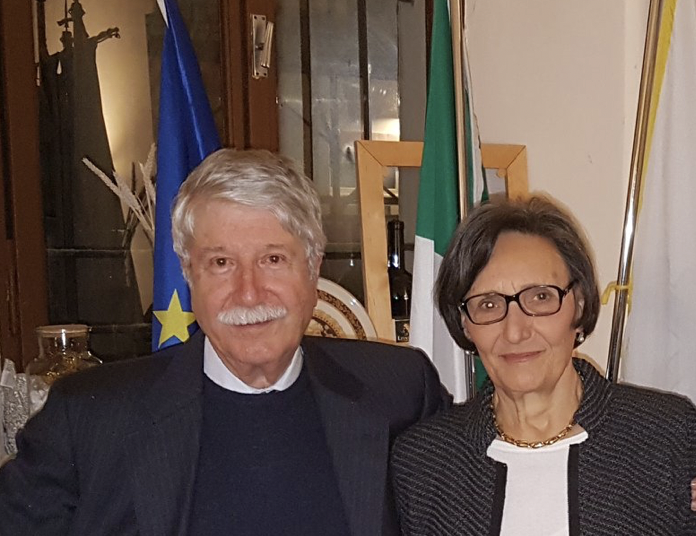Italian language classes for the refugees, by the president of the Jewish community of Mantua

Over the past year, a great number of Ukrainians fleeing Russian military aggression arrived in Italy as it never happened before. But the atlas of human suffering is wide, covering several regions and continents: from Nigeria to Bangladesh, from Georgia to Egypt. Many have left their homeland as a result of long-standing persecution and wars. Some due to the lack of educational and job opportunities. Some others, just in search of a better standard of living.
In the school “without borders” in Mantua, refugees coming from many different places are welcomed. The school is named after its founder, Sandro Saccani, and it is hosted in some premises made available by the municipality of Mantua under the aegis of ACLI, the Christian association of Italian Workers.
Here refugees are taught the basics of the Italian language, the first and essential rudiments everyone has to master in order to gain autonomy and, as quickly as possible, even a job. One of many volunteer-based organizations that strive to provide services and assistance to those who need it most and don’t have almost anything, starting with a minimal knowledge of the new society they live in and the new communication codes.
For a few months now, two new teachers are enlivening the school: the president of the Jewish community of Mantua Emanuele Colorni and his wife Loredana Leghziel. “We couldn’t help but lead by example. We Jews perfectly know what it means to be in a condition of existential precariousness” tells Colorni, who was born during the Second World War, in the midst of anti-Jewish persecution.
It’s not an easy context to operate in: “The average age is around 25-30 years old. Unfortunately, there is whole world right in front of our eyes. Sometimes speaking English or any other European language has no effects whatsoever. Many of our ‘students’, in fact, are not familiar with the Latin alphabet. It’s the case, for example, of the refugees from Bangladesh. They often only speak Bengali.”
The Colorni couple got to know the school “without borders” thanks to the reporting of a Jewish Community member who helps refugees with bureaucratic and legal paperwork. “His report has been providential: this educational space, and the important task it’s been providing since more than twenty years impressed us right away. The fact that my wife and I are the only teachers working in the school says a lot about how much is still to be done to raise a certain level of public awareness.”
It only takes a few hours a week. “We don’t pretend to work any miracles and, I must admit, we are struggling to keep things going. Students are constantly changing: someone who is here today may not be with us anymore tomorrow. Sometimes we feel lonely, almost helpless. But we will continue as long as we can with the utmost willingness and determination. The Jewish community, also because of its past, cannot help but being at the forefront when it comes to migration: it’s an issue we can’t and mustn’t ignore”.
In cooperation with the local section of the FAI (Fondo Ambiente Italiano, the National Trust of Italy), the Jewish Community of Mantua is also committed to getting the local society to know more about the city’s Jewish sites. More than a hundred people have recently visited the Norsa-Torrazzo synagogue, one of the six synagogues that once stood in Mantua. When, at the end of the 19th century, the ancient Jewish quartier that once was the ghetto was demolished, the building was dismantled from its original location and rebuilt, exactly as it was, inside the Community building in Via Gilberto Govi. A gem of our identity and one of Italy’s most beautiful synagogues.
Translation by Margherita Francese, revised by Sofia Busatto, students at the Secondary School of Modern Languages for Interpreters and Translators of the University of Trieste, interns at the newspaper office of the Union of the Italian Jewish Communities – Pagine Ebraiche.
